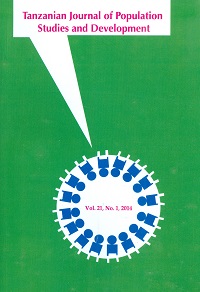Public Health Expenditure and Economic Growth in Tanzania: Evidence from Autoregressive Distributed Lag And Causality Approaches
Abstract
This article investigates the effect of public health expenditure on economic growth in Tanzania using time series data from 1980 to 2017, extracted from the World Bank database. Co-integration and Autoregressive Distributed Lag Model in Error Correction Model framework was employed in the analysis. The results revealed a significant positive effect of the lag of public health expenditure on economic growth in the short-run, while there was an insignificant effect of the relationship in the long-run. The study also found that improvement in health status has a significant positive impact on economic growth, supported by the causality results. Concerning the causality test, it was found that there was a bidirectional relationship between public health expenditure and economic growth; and between health status (infant mortality) and economic growth. This strictly signifies the effectiveness of government spending on health on economic growth, through enhancing worker productivity and output. Besides, rising household consumption expenditure was found to have a significant positive impact on boosting economic growth in Tanzania. However, the revealed insignificant long-term coefficient of public health expenditure on economic growth should not necessarily be taken as a reason to reallocate health expenditure from the health sector. Based on the findings, the study recommends that for Tanzania to sustain its economic growth, it needs to pay attention to measures that would improve the health of its citizens through allocating adequate budgetary expenditure to the health sector. Nevertheless, this has to go hand in hand with the establishment of a strong institutional system to ensure effective utilization of the allocated resources.
Keywords: public health expenditure, economic growth, co-integration, Tanzania


